Related Research Articles
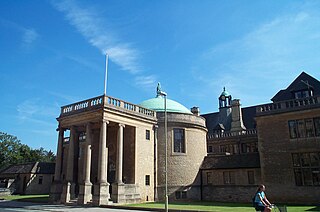
The Rhodes Scholarship is an international postgraduate award for students to study at the University of Oxford, in the United Kingdom.
John Sherren Brewer, Jr. was an English clergyman, historian and scholar. He was a brother of E. Cobham Brewer, compiler of Brewer's Dictionary of Phrase & Fable.
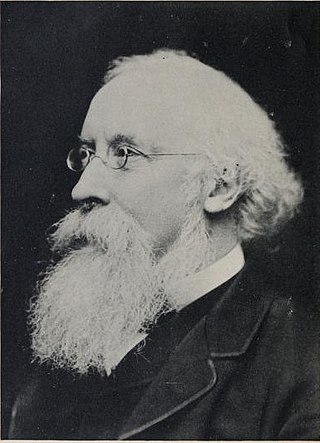
Whitley Stokes, CSI, CIE, FBA was an Irish lawyer and Celtic scholar.

Friedrich Max Müller was a German-born philologist and orientalist, who lived and studied in Britain for most of his life. He was one of the founders of the western academic disciplines of Indian studies and religious studies. Müller wrote both scholarly and popular works on the subject of Indology. The Sacred Books of the East, a 50-volume set of English translations, was prepared under his direction. He also promoted the idea of a Turanian family of languages.
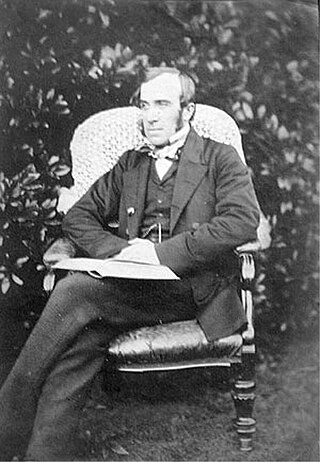
Sir Monier Monier-Williams was a British scholar who was the second Boden Professor of Sanskrit at Oxford University, England. He studied, documented and taught Asian languages, especially Sanskrit, Persian and Hindustani.

Horace Hayman Wilson was an English orientalist who was elected the first Boden Professor of Sanskrit at Oxford University.
Boden may refer to:

William Dwight Whitney was an American linguist, philologist, and lexicographer known for his work on Sanskrit grammar and Vedic philology as well as his influential view of language as a social institution. He was the first president of the American Philological Association and editor-in-chief of The Century Dictionary.
Indology, also known as South Asian studies, is the academic study of the history and cultures, languages, and literature of the Indian subcontinent, and as such is a subset of Asian studies.

Sir Cecil Clementi was a British colonial administrator who served as Governor of Hong Kong from 1925 to 1930, and Governor and Commander-in-Chief of the Straits Settlements from 1930 to 1934.
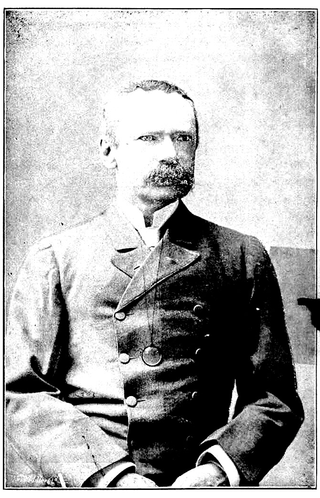
Arthur Anthony Macdonell, FBA was a Sanskrit scholar.
Thomas Burrow was an Indologist and the Boden Professor of Sanskrit at the University of Oxford from 1944 to 1976; he was also a fellow of Balliol College, Oxford during this time. His work includes A Dravidian Etymological Dictionary, The Problem of Shwa in Sanskrit and The Sanskrit Language.
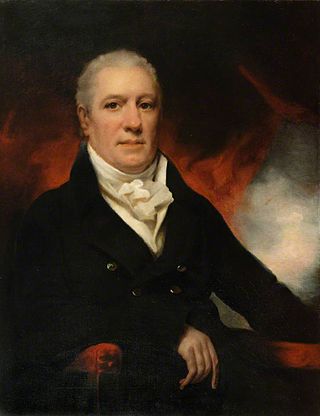
Sir William Fettes, 1st Baronet was a wealthy Scottish businessman and philanthropist, who left a bequest which led to the foundation of Fettes College, in Edinburgh.
John Clay was the founder and patron of the Clay Sanskrit Library, a publishing venture that produced editions of Sanskrit classics with English translation on facing pages.
James Yates F.R.S., F.L.S., F.G.S. was an English Unitarian minister and scholar, known as an antiquary.

The position of Boden Professor of Sanskrit at the University of Oxford was established in 1832 with money bequeathed to the university by Lieutenant Colonel Joseph Boden, a retired soldier in the service of the East India Company. He wished the university to establish a Sanskrit professorship to assist in the conversion of the people of British India to Christianity, and his bequest was also used to fund scholarships in Sanskrit at Oxford. The first two professors were elected by Oxford graduates, as the university's statutes provided: Horace Hayman Wilson won by a narrow majority in 1832, and the 1860 election was hotly contested, as the rivals each claimed to be best at fulfilling Boden's intentions and presented different views about the nature and purpose of Sanskrit scholarship. Reforms of Oxford implemented in 1882 removed all mention of Boden's original purpose from the statutes, removed the power to elect the professor from graduates, and gave the holder of the professorship a fellowship at Balliol College, Oxford.
Edward Hamilton Johnston was a British oriental scholar who was Boden Professor of Sanskrit at the University of Oxford from 1937 until his death.
Sir Graves Chamney Haughton FRS was a British scholar of Oriental languages.

The election in 1860 for the position of Boden Professor of Sanskrit at the University of Oxford was a competition between two candidates offering different approaches to Sanskrit scholarship. One was Monier Williams, an Oxford-educated Englishman who had spent 14 years teaching Sanskrit to those preparing to work in British India for the East India Company. The other, Max Müller, was a German-born lecturer at Oxford specialising in comparative philology, the science of language. He had spent many years working on an edition of the Rig Veda and had gained an international reputation for his scholarship. Williams, in contrast, worked on later material and had little time for the "continental" school of Sanskrit scholarship that Müller exemplified. Williams regarded the study of Sanskrit as a means to an end, namely the conversion of India to Christianity. In Müller's opinion, his own work, while it would assist missionaries, was also valuable as an end in itself.
Dame Nellie Melba Scholarship may refer to any of several prizes awarded by the great soprano or in her name.
References
- ↑ Chichester, H. M.; Carter, Philip (May 2005). "Boden, Joseph (d. 1811)". Oxford Dictionary of National Biography . Oxford University Press . Retrieved 9 May 2012.(subscription or UK public library membership required)
- 1 2 3 "Schedule Part 6: Boden Fund". University of Oxford. 18 July 2006. Archived from the original on 15 September 2017. Retrieved 13 May 2012.
- 1 2 Henry, John; Parker, James (1862). The Oxford University Calendar 1862. p. 121.
- ↑ "Oxford and women students: Scholarships thrown open". The Manchester Guardian . 6 May 1931. ProQuest 478223759.
- ↑ Oxford University Calendar, 1875, p. 376
- ↑ "Making of Britain". Open University. Retrieved 24 October 2013.